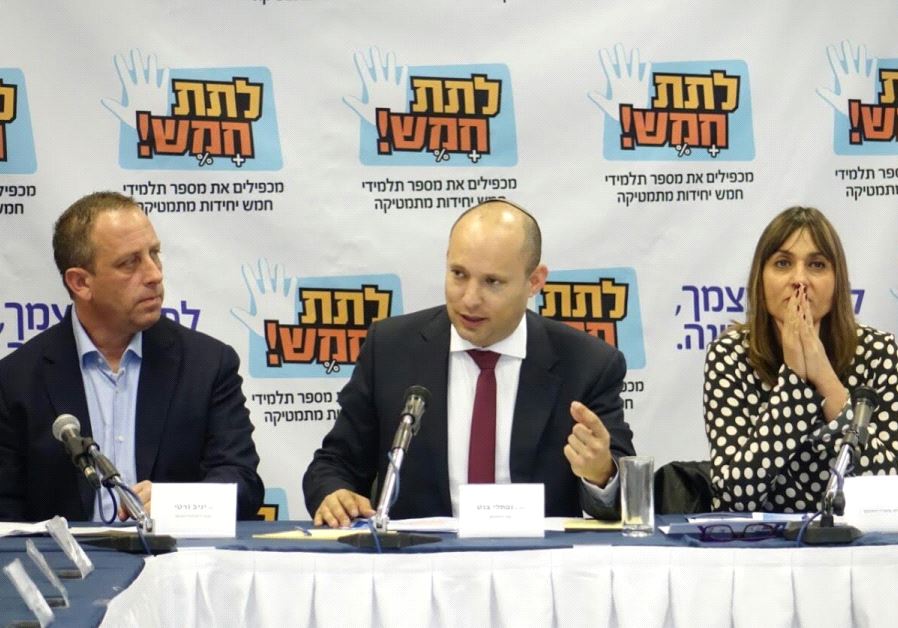Record number of students pursuing high level math in Israel
After making progress this year, the Education Ministry now aims to get 16-30% of high schools students to study mathematics at the highest level.
 Education Minister Naftali Bennett at a press conference in Tel Aviv on Wednesday(photo credit: COURTESY EDUCATION MINISTRY)Updated:
Education Minister Naftali Bennett at a press conference in Tel Aviv on Wednesday(photo credit: COURTESY EDUCATION MINISTRY)Updated: